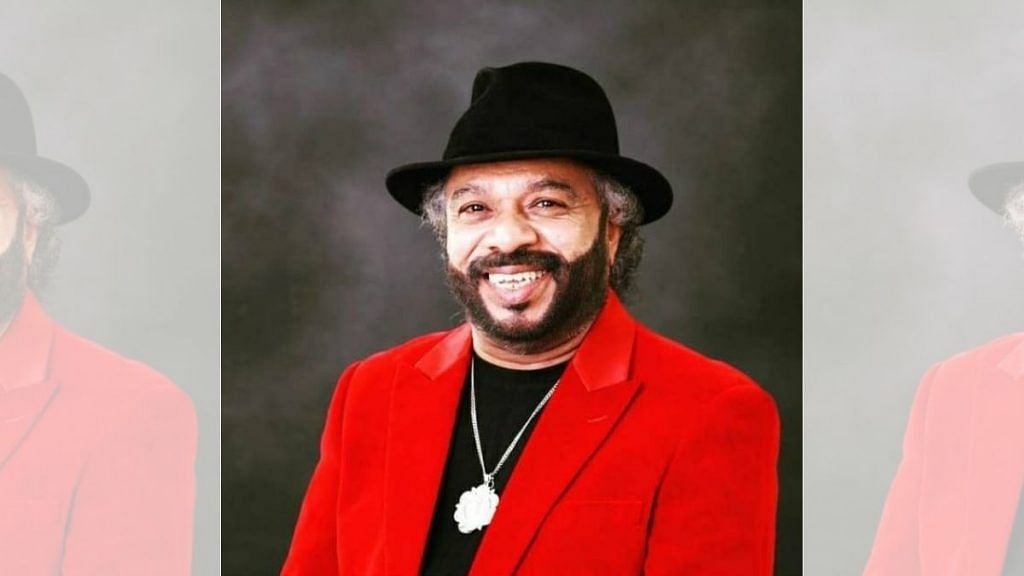New Delhi: From as far back as the early 1970s if there was one thing that was common to most celebrations in Sri Lanka, it was the voice of singer Sunil Perera, affectionately addressed as “Sunil Aiya” (big brother in Sinhalese) by Sri Lankans.
The lead singer of the band The Gypsies, which rose to prominence with hits like Kurumitto (Extraterrestrials), Oye Ojaye, None Mage Sudu None (Lady My Fair Lady), and Signore, his voice dominated dance floors, cricket stadiums, weddings, and carnivals for nearly five decades.
That legendary voice — loved by generations of Sri Lankans — fell silent Monday with Perera’s death from Covid-related complications. He was 68.
Condolence messages started flooding social media, soon after Perera’s family confirmed his passing earlier this week. In a statement, Archbishop of Colombo, Malcolm Cardinal Ranjith described Perara as a “talented entertainer” and “a true Christian” who used music for social reform. Irrespective of political differences, Perara was critical of injustice and threats to “political honesty”, added the Archbishop.
Colombo-based journalist Azzam Ameen remembered the versatile singer by sharing a clip of an interview he had done with a local TV channel. In the clip, Perera is heard saying that in 72 years of Sri Lanka’s independence, the country is in debt to the whole world. Sri Lanka has relied on countries like China for loans that have come in the price of land, and even the Hambantota Port.
“Is it the fault of the people? Whose fault is it? I don’t blame one group. I blame the entire set of politicians who ruled us,” said Perera in the interview.
Both on and offstage, Perera was vocal against Sri Lanka’s current President Gotabhaya Rajapaksa and his brother, former President Mahinda Rajapaksa. In 2016, at an event organised to discuss challenges faced by journalists and the media, he criticised the opposition too, calling both parties the “bane of the country“.
Also read: ABBA’s isn’t just a cash-grab comeback. It reminds us of their staying power in pop culture
‘Father helped build The Gypsies’ studio’
Perera was born in 1952, in a large suburb in Colombo known as Moratuwa. His father, Anton, encouraged Perera and his brothers on their musical quest.
In an interview to The Sunday Morning in February this year, Perera had recalled that his father had initially wanted him to become a doctor, but once he realised that his son couldn’t manage to get the necessary grades, he encouraged him to follow his passion for music. Perera had been 15 at the time.
His father was also the one who gave the band its name.
“…[Anton] built a studio for us to practise in. Initially, The Gypsies was a group of seven — three of my brothers, three of my cousins on my father’s side, and me. We played and learned at the same time,” the musician had said. Later, the group included Sunil and Piyal Perera with Gordon Athula, Dushan Jayathilake, Monique Pallegama, Kamal Perera, and Shezri Shirajudeen.
While the band performed Sinhala and English songs, it specialised in the ‘baila’ genre of music which has roots in the Portuguese colonialisation of the country that took place between 1505-1658.
Also read: James Bond, Bollywood, waltz — Mumbai Police band starts ‘Khaki Studio’, offers break from Covid
‘Being original’
Speaking to ThePrint on WhatsApp, 42-year-old Sri Lankan music director Buddhika Dayarathna recalled his first meeting with Perera. “I met Sunil Perera for the first time at a TV program in 2001. The first thing he told me was that I will never have a lasting future as a musician unless I come up with my own creations,” said Dayarathna who now manages a band of four singers, known as Yellow Beatz.
“His vision had become a reality as bands like Marians and Wayo continue to shine in an industry that has largely been overtaken by electronic music,” added Dayarathna.
A hallmark of Sri Lankan pop culture, The Gypsies were known for their catchy tunes and imaginative lyrics. For example, Kurumitto, released in 2003, tells the story of aliens landing in Sri Lanka and eventually declining an invitation to stay.
The band’s storytelling ability was versatile. A BBC report noted how songs like Uncle Johnson told the story of a ruined wedding anniversary party, Signore was about a defeated politician, and Saima Cut Vela was the tale of a woman convinced her husband was ill when in fact, he was drunk.
The band’s rendition of the classic folk song Baila Non Stop was commonly played at many Sri Lankan weddings, parties, or carnivals.
(Edited by Poulomi Banerjee)
Also read: 40 Years of MTV — the channel that shaped popular culture as we know it
